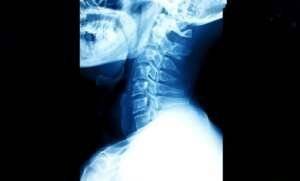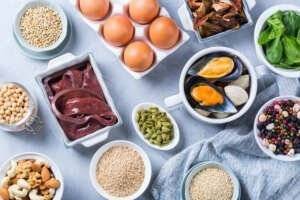Cervical radiculopathy, commonly referred to as a “pinched nerve,” is a condition caused by compression or irritation of nerve roots in the cervical spine. It manifests through symptoms such as neck pain, numbness, tingling, or weakness in the arms. While treatment typically involves physical therapy, medications, or lifestyle modifications, nutrition—particularly the role of choline is an often overlooked avenue for managing symptoms and promoting nerve health.

Choline: An Essential Nutrient for Nerve Function
Choline is a water-soluble nutrient crucial for maintaining brain and nerve health. It plays vital roles in:
- Nerve Signal Transmission
Choline is a precursor to acetylcholine, a neurotransmitter that facilitates communication between nerves and muscles. This function is critical for those with cervical radiculopathy as it supports efficient nerve signalling. - Cell Membrane Health
Choline contributes to the production of phospholipids, like phosphatidylcholine, which are key components of cell membranes. Strong, healthy cell membranes ensure optimal nerve function and repair. - Reducing Inflammation
Chronic inflammation exacerbates nerve pain. Choline’s anti-inflammatory properties can help reduce nerve-related discomfort, enhancing recovery.
The Connection Between Choline and Cervical Radiculopathy
Nerves affected by cervical radiculopathy are under significant stress, leading to impaired signal transmission. A diet rich in choline can help:
- Promote Nerve Repair
Choline supports the production of phosphatidylcholine, aiding in repairing and maintaining the structural integrity of nerve membranes. - Enhance Muscle Function
As a precursor to acetylcholine, choline ensures efficient communication between nerves and muscles, reducing symptoms like weakness and spasms. - Protect Myelin Sheath
Choline contributes to the synthesis of sphingomyelin, a critical component of the myelin sheath. This sheath insulates nerves, allowing faster and more efficient signal transmission, which is essential for managing radiculopathy symptoms.
Signs of Choline Deficiency
Low choline levels can exacerbate symptoms of cervical radiculopathy. Common signs include:
- Cognitive issues like memory loss or difficulty focusing.
- Muscle weakness or fatigue.
- Tingling or numbness in extremities.
- Mood disturbances, such as irritability or depression.
Choline-Rich Foods to Incorporate

Choline is readily available in various foods, catering to different dietary preferences:
- Eggs: A single egg provides approximately 147 mg of choline, making it one of the richest sources.
- Fatty Fish: Salmon and cod offer choline along with anti-inflammatory omega-3 fatty acids.
- Soy Products: Tofu and soybeans are excellent choline sources for plant-based diets.
- Cruciferous Vegetables: Broccoli, cauliflower, and Brussels sprouts provide moderate amounts of choline and antioxidants.
- Organ Meats: Beef or chicken liver delivers an exceptionally high concentration of choline.
Choline Supplements: A Viable Option
If dietary intake isn’t sufficient, supplements like choline bitartrate or phosphatidylcholine can bridge the gap. Always consult a healthcare professional before starting supplementation to determine the appropriate dosage and ensure safety.
Conclusion
Managing cervical radiculopathy involves more than just physical therapy and medications. Nutrition, particularly choline intake, plays a pivotal role in supporting nerve health. By incorporating choline-rich foods into your diet or considering supplementation, you can aid nerve repair, reduce inflammation, and improve muscle function.
Remember, a holistic approach—combining a nutrient-dense diet, lifestyle changes, and medical guidance—is key to managing symptoms and improving quality of life. With small, intentional dietary adjustments, choline can become a cornerstone of your recovery strategy, helping you regain strength and reduce discomfort.
References
- National Institutes of Health, Office of Dietary Supplements: “Choline: Fact Sheet for Health Professionals.” https://ods.od.nih.gov/factsheets/Choline-HealthProfessional/#h3
- Institute of Medicine: “Dietary Reference Intakes for Choline.” https://www.ncbi.nlm.nih.gov/books/NBK441828/


